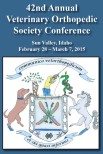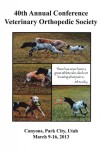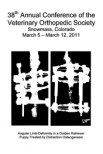Objective: Osteoarthritis is a painful, chronic joint disease affecting man and animals with no known curative therapies. Palliative nonsteroidal anti-inflammatory drugs (NSAIDs) are commonly used but they cause adverse side effects prompting the search for safer alternatives. To address this need, we evaluated the anti-inflammatory activity of avocado/soybean unsaponifiables (ASU), glucosamine (GLU), and chondroitin sulfate (CS) with or without the NSAID carprofen.
Design: Canine chondrocytes were propagated in microcarrier spinner culture and incubated with (1) control medium, (2) ASU (8.3 µg/mL) + GLU (11 µg/mL) + CS (20 µg/mL) combination for 24 hours; and/or carprofen (40 ng/mL). Cultures were next incubated with control medium alone or IL-1β (10 ng/mL) for another 24 hours. Production of PGE2, IL-6, IL-8, and MCP-1 (also known as CCL-2) were measured by ELISA.
Results: Chondrocytes proliferated in microcarrier spinner culture and produced type II collagen and aggrecan. Stimulation with IL-1β induced significant increases in PGE2, IL-6, IL-8, and MCP-1 production. The increases in production were suppressed by carprofen as well as [ASU+GLU+CS]. The combination of carprofen and [ASU+GLU+CS] reduced PGE2 production significantly more than either preparation alone. The inhibitory effect of carprofen on IL-6, IL-8, and MCP-1 production was significantly less than that of [ASU+GLU+CS], whereas the combination did not reduce the production of these molecules significantly more than [ASU+GLU+CS] alone.
Conclusions: The potentiating effect of [ASU+GLU+CS] on low-dose carprofen was identified in chondrocyte microcarrier spinner cultures. Our results suggest that the combination of low-dose NSAIDs like carprofen with [ASU+GLU+CS] could offer a safe, effective management for joint pain.
KEYWORDS: avocado/soybean unsaponifiables; carprofen; chondrocytes; chondroitin sulfate; glucosamine









